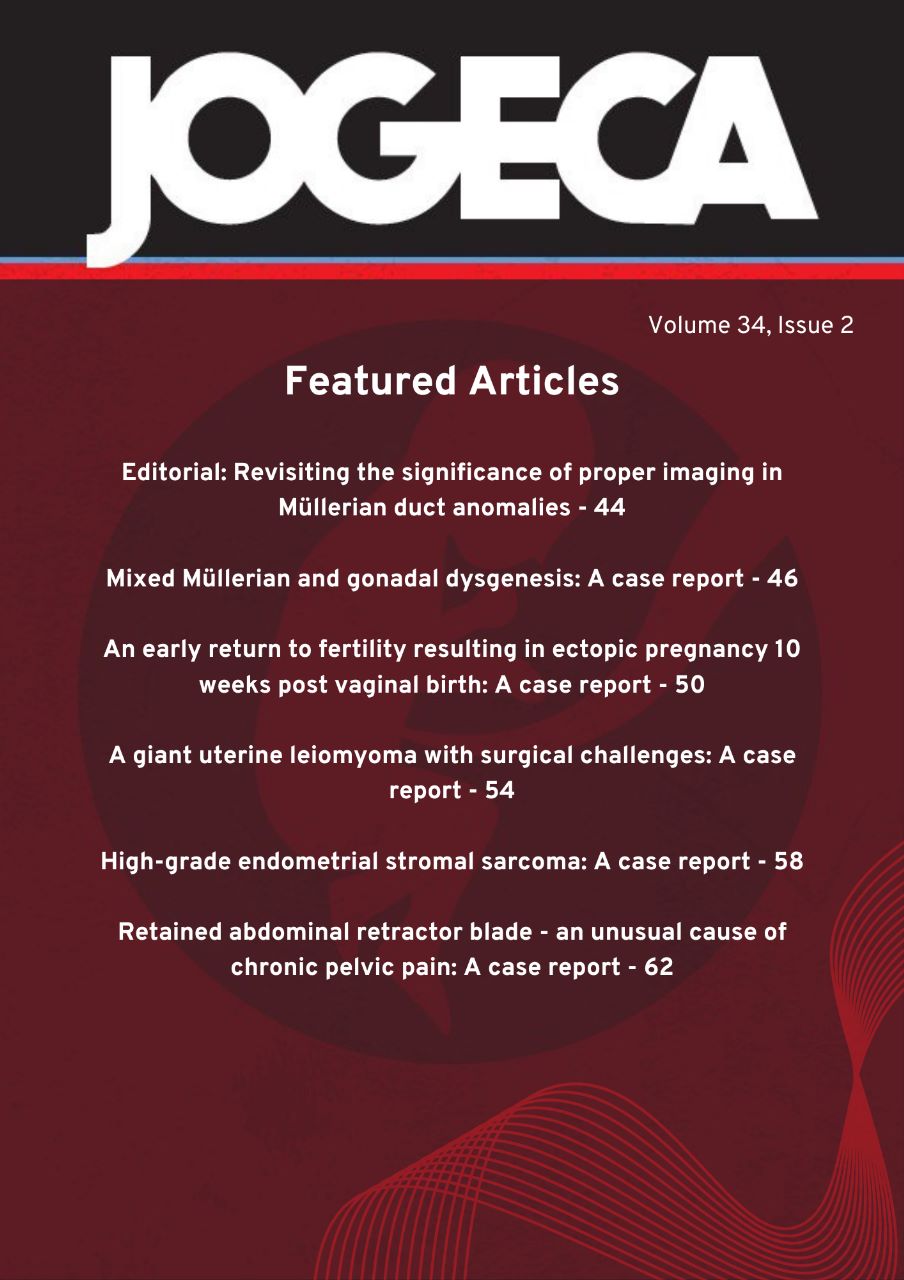A training program for obstetrics point-of-care ultrasound to rural health care providers in Kenya
DOI:
https://doi.org/10.59692/jogeca.v36i1.128Abstract
Background: Ultrasound is a crucial and effective diagnostic tool in medicine. Recent advancements in technology have led to the increased use of point-of-care ultrasound (POCUS). Access to ultrasound equipment and training programs in low- and middle-income countries (LMICs) is limited. Despite the World Health Organization’s (WHO) recommendations for universal antenatal ultrasounds, POCUS for reproductive health has not been widely used in LMICs. We describe the implementation of obstetrics POCUS training for high-risk conditions in rural public health care facilities in Kenya.
Methods: As part of the initiation of a large-scale implementation study of obstetrics-POCUS, clinician trainees were recruited from rural Kenyan hospitals to participate in a series of five-day POCUS workshops. Trainers provided brief didactic lessons followed by hands-on training with live models and at regional clinical sites for five obstetrics POCUS applications. Instructor-observed assessments of students’ scanning and image interpretation were performed during the training period. Assessment of knowledge and confidence was performed via an online pretest and posttest and objective structured clinical examinations.
Results: 514 midlevel health care providers were trained over three months, with a trainer: trainee ratio of 1:5. Of the 514 trained HCPs, 468 were from 8 rural counties with poor maternal and neonatal outcomes, while the remaining 46 were from nearby facilities. Obstetrics POCUS topics covered included malpresentation, multiple gestation, fetal cardiac activity, placenta, and amniotic fluid volume. There was a marked improvement in the posttraining test scores.
Conclusion: Our implementation description serves as a guide for the successful rapid dissemination of obstetrics POCUS training for midlevel providers. Our experience demonstrates the feasibility of a short intensive POCUS training to rapidly establish specific POCUS skills in efforts to rapidly scale POCUS access and services. There is a widespread need for expanding access to ultrasound during pregnancy through accessible obstetrics POCUS training programs.
Downloads
Published
How to Cite
Issue
Section
Categories
License
Copyright (c) 2024 The Authors.

This work is licensed under a Creative Commons Attribution 4.0 International License.




